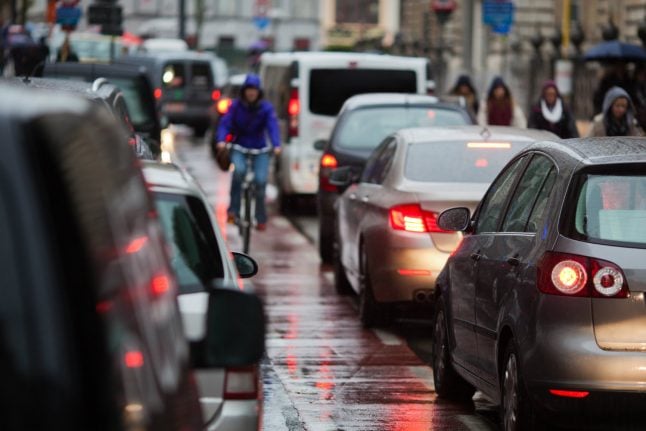According to the Confederation of Danish Industry, the difficulties of commuting can make it harder for companies to attract new, qualified employees.
Congestion and delays have become somewhat the norm for many Danes, shows a new study about the everyday lives of Denmark’s commuters commissioned by the Confederation of Danish Industry (DI).
In a representative survey conducted by Epinion, 2,012 Danes answered questions about how they experience their journey to and from their current workplace.
37 percent of respondents who commute by car replied that they experience congestion and delays either daily or 3-4 times a week.
And the situation is no better for those who take the bus, train or metro to work. Among users of public transport, 36 per cent experience problems with congestion or delays nearly every day, writes dibusiness.dk.
According to Director of the Danish Transport Federation Michael Svane, the congestion issues are a challenge for both commuters and companies.
READ ALSO: Copenhagen cyclists get traffic info screens
“Stop-and-go traffic is rarely much fun. And to make matters worse, it makes people think twice before saying yes to jobs located further away. That’s bad news at a time when many companies have difficulty attracting employees,” Svane said.
This question was also posed in DI’s survey. The factor that would make most people say yes to a job located a bit further away is more flexibility and the possibility of working from home, according to the study.
This is followed by better roads, better public transport and lower transport costs.
Svane says that this underlines the necessity of taking action in several areas if Danes are to become more mobile.
“It is in the interest of companies, workers and society that getting to and from work is easy. In my opinion, the survey therefore provides food for thought. Not only do we need to invest in good roads and better public transport, but companies can also help promote the development by being flexible in relation to employees’ work,” he said.
In DI’s survey, 81 per cent of respondents say that they would prefer to spend as little time as possible on transport.
What would make you say yes to a job located further away? Vote here (in Danish).


 Please whitelist us to continue reading.
Please whitelist us to continue reading.